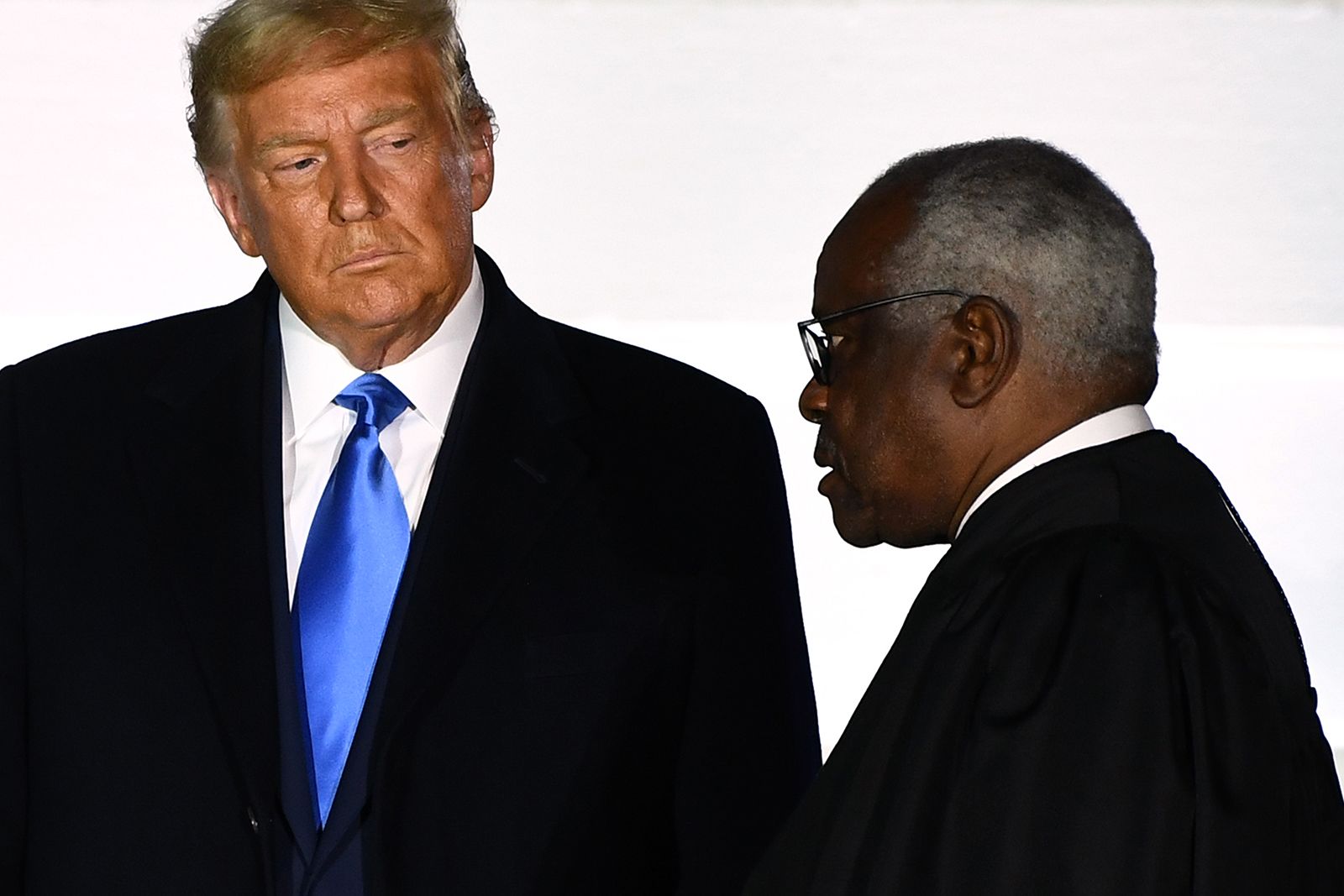
Supreme Court Rejects Ex-Trump Lawyer John Eastman’s Appeal With Clarence Thomas Recusing Himself
In an unprecedented move, Conservative Justice Clarence Thomas, who has been facing scrutiny over allegations of ethical misconduct, found himself recused from a case related to the January 6, 2021, attack on the U.S. Capitol by supporters of then-President Donald Trump. On Monday, the appeal brought by former Trump legal advisor John Eastman was dismissed by the Supreme Court.
Justice Thomas was the sole justice last year to express support for Donald Trump’s legal contentions.
This time, Justice Thomas abstained from the case concerning Eastman, who had previously served as a law clerk to the justice. In keeping with the usual practice of justices, Thomas did not provide a rationale for his recusal.
Eastman’s case centered on the now-defunct January 6 committee and revolved around the former law professor’s efforts to prevent his former employer, Chapman University, from disclosing emails.
Eastman had advanced the discredited argument that then-Vice President Mike Pence possessed the authority to decline to certify the results of the 2020 presidential election.
Additionally, Eastman faces indictment over his involvement in endeavors to overturn the 2020 election results in Georgia.
Recently, Eastman defended Justice Thomas in the face of various news reports alleging ethical lapses among the justices.
Previously, Justice Thomas had come under criticism for failing to recuse himself from the January 6 case related to Trump, primarily due to the active support for Trump’s election overturn efforts by his wife, conservative political activist Virginia “Ginni” Thomas.
In a separate Trump-related case, the Supreme Court also dismissed an ambitious legal challenge that sought to bar Trump from running for president once more. This appeal, filed by John Castro, a write-in Republican presidential candidate who represented himself, was one of several similar lawsuits.
Castro contended that Trump’s actions amounted to violating the Constitution’s 14th Amendment, making him ineligible to appear on the ballot. The 14th Amendment states that no one who has “engaged in insurrection or rebellion against the [United States], or given aid or comfort to the enemies thereof” shall hold any office.
While some legal scholars supported this argument, others dismissed it, citing difficulties in enforcing this constitutional provision and questioning whether Trump’s actions constituted “insurrection or rebellion.”
Trump currently faces criminal charges related to his involvement in the events leading up to January 6 and was also impeached by the Democratic-controlled House of Representatives shortly after the incident. The Senate, however, acquitted Trump as it fell short of the required 67 votes to convict him.
Although the Supreme Court may eventually weigh in on this issue before the 2024 election, Castro’s case appeared unlikely to gain traction. One contributing factor was that after losing in a federal district court in Florida, Castro directly filed his appeal with the Supreme Court, bypassing the standard appeals process.
The judge overseeing the case was Judge Aileen Cannon, a Trump appointee who drew attention for presiding over another criminal case involving the former president. This particular case pertained to allegations that Trump unlawfully retained government documents at his Mar-a-Lago residence after leaving office.
Even before the Supreme Court dismissed Castro’s appeal, its lack of interest in the case was evident as it did not request Trump’s legal team to submit a response.